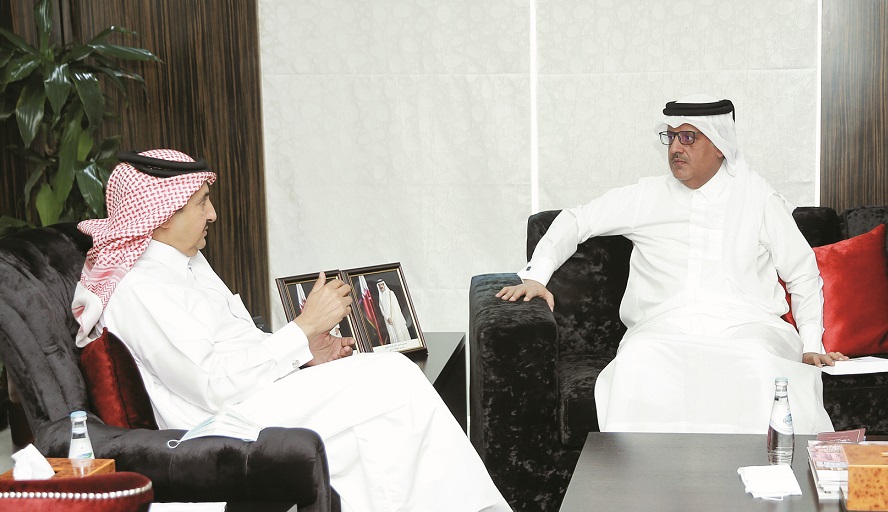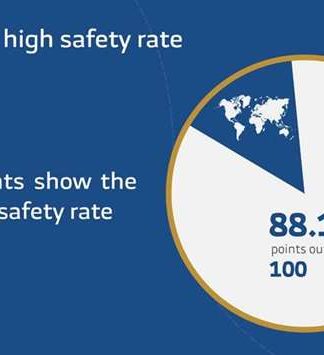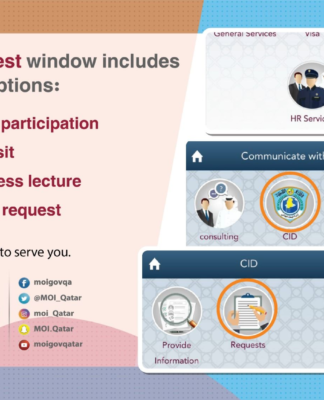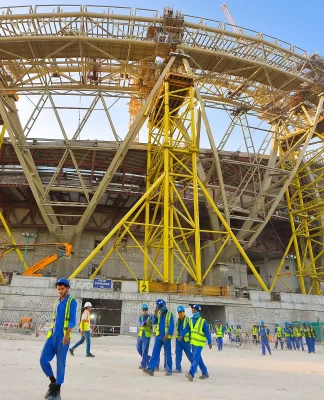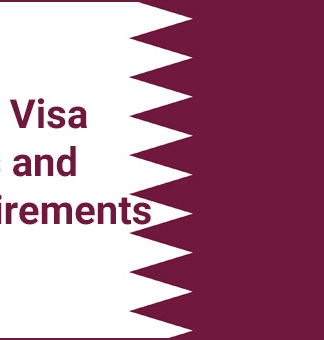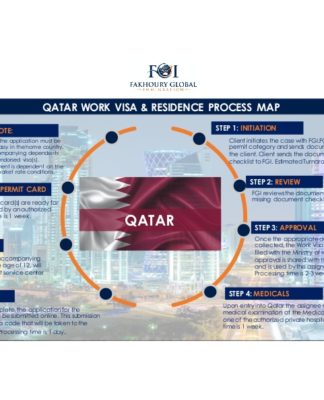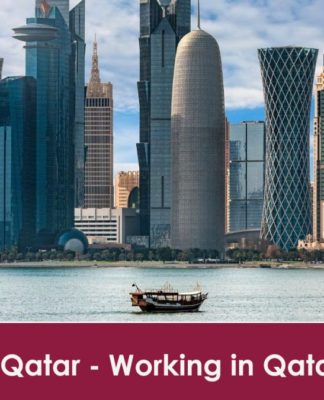Sheikh Khalifa bin Jassim during his speech to Al Sharq
* The Chamber supports small projects and efforts to transform the digital economy
* 12 new pharmaceutical factories with investments exceeding one billion riyals
* The education sector needs more investments during the coming period
* The Partnership Act came at the right time
His Excellency Sheikh Khalifa bin Jassim bin Mohammed Al Thani, Chairman of the Qatar Chamber and President of the International Chamber – Qatar, revealed that about 1,391 factories have been launched with investments estimated at 292 billion riyals in various economic sectors, including about 476 factories under construction, in addition to about 915 existing factories.
His Excellency added in a special dialogue with the East: It is expected that the industrial sector will witness remarkable growth by the end of this year, given the presence of many factories that have been licensed and are awaiting entry into the production phase, and the Chamber’s Chairman referred to multiple programs for cooperation with all parties to contribute to confronting The repercussions of Covid, adding: The financial incentives have greatly contributed to mitigating the effects of the pandemic on the economy.
He pointed out that the development and empowerment of small and medium-sized companies is one of the Chamber’s most important priorities, as it supports creative ideas for small projects and efforts to transform the digital economy. Regarding indicators of national economic growth, the Chamber’s Chairman said: Private sector exports amounted to 7.9 billion riyals in the first half of the year, while exports of the second quarter that were more affected by Corona began to return to their normal levels, stressing that our economy has begun to recover from the effects of Corona and we expect an increase The pattern of trade during the last quarter.
The President of the Chamber praised the financial package that came within the framework of the wise leadership’s directives to support the economy and help it overcome the negative consequences imposed by the Corona crisis and the measures taken by the state to limit the spread of the virus, which are estimated at 75 billion riyals, which was a strong push to enable it to maintain its growth and continuity.
He said: These decisions and procedures have achieved benefit to the private sector, and demonstrated the interest and eagerness of His Highness the Emir to support the private sector, based on the role the sector plays in the comprehensive development witnessed by the country, and this package also provided support to Qatari companies by helping them pay salaries. Short-term support for rental payments in certain sectors, for example retail.
The president of the chamber expected that the coming period will witness more projects that are implemented within the framework of the partnership between the two sectors, especially after the issuance of the Partnership Law, which came in a timely manner, as the law will play a major role in achieving integration between the two sectors and strengthening work between them to achieve the economic diversification that the state seeks in line with Qatar National Vision 2030, stressing that the partnership is necessary for the completion of many projects in different sectors, and will provide tremendous opportunities for the private sector in various sectors, as it will enhance its role as a true partner of the public sector in the development process, in addition to that it will contribute to its development significantly and encourage it to enter Important projects in the country, which enhances the development of its capabilities and the formation of experience that will benefit from it in the projects that it will implement during the coming period, in addition to the participation of the private sector with its expertise, with the government in major projects in vital sectors such as education, health, sports and others, will benefit the projects Itself fromOne side, and the national economy on the other.

Regarding the establishment of companies, which is an important indicator of the growth of the economy, Sheikh Khalifa bin Jassim bin Muhammad Al Thani said: The period that followed the unjust blockade witnessed the establishment of a large number of companies in the Qatari market and the attraction of more foreign investments to the country, contrary to what the blockading countries expected. Thanks to the legislation, facilities and incentives provided by the state to attract investments.
According to the data of the Qatar Chamber, the number of companies established after the blockade reached more than 47 thousand companies in all economic and commercial sectors. In 2017, about 15 thousand companies were established, and in 2018 about 17 thousand new companies, and in 2019 about 12 thousand. In the first half of 2020, about 3 thousand companies.
The Chamber’s president pointed out that many of these companies contributed to the private sector’s efforts to break the blockade, by finding sources to import alternative goods from the blockading countries, from which we used to import most of the products, and some of these companies created new industries that did not exist in Qatar. Especially in the areas of food security, which contributed to supporting the state’s efforts to raise self-sufficiency rates.
The recent period, which witnessed the emergence of the Coronavirus and the new economic challenges, witnessed the launch of a package of decisions supportive of the economy and the private sector, which included providing financial and economic incentives in the amount of 75 billion riyals to the private sector, in addition to the Qatar Central Bank setting up the appropriate mechanism to encourage banks to postpone loan installments and obligations The private sector with a grace period of six months, and based on the directives of the wise leadership, this support package has been renewed. What are the implications and results that the private sector, especially small and medium companies, get from this support?
There is no doubt that the financial package that came within the framework of His Highness’s directives to support the Qatari economy and help it overcome the negative consequences imposed by the Corona crisis, and the measures taken by the state to limit the spread of the virus, estimated at 75 billion riyals, was a strong push to enable it to maintain its growth and continuity. .
This package included supporting the liquidity of commercial banks, the stock exchange and the guarantees program from Qatar Development Bank to support salaries and rents, in addition to exempting electricity and water costs, reducing various fees for economic activities in the country to support them during this period, and a number of related decisions and procedures.
These are decisions and measures that have benefited the private sector and demonstrated the interest and eagerness of His Highness the Emir to support the private sector, based on the role the sector plays in the comprehensive development witnessed by the state.
This package provided support to Qatari companies by helping them pay salaries in the short term and subsidizing rental payments in specific sectors, for example retail.
I can say that small and medium companies have benefited from this package significantly, as they have contributed to alleviating these companies by postponing the payment of loans with local banks, as well as reducing the burdens and operating expenses on companies operating in the hospitality, retail, tourism, commercial complexes, logistics areas and outlets from During the granting of exemptions from electricity and water fees for a period of six months.
Now, with the gradual opening up of the economy and the easing of restrictions, we hope that business will continue as usual and that the impact of the pandemic on the private sector has begun to diminish.
The difficult stage
Can we say that the economy has passed the shock phase created by the Corona pandemic, and where has the road map drawn up by the Chamber and the relevant government agencies arrived based on the directives of His Excellency Sheikh Khalid bin Khalifa bin Abdulaziz Al Thani, Prime Minister and Minister of Interior after meeting His Excellency in the business sector?
The Qatari economy has successfully surpassed this difficult stage, just as it succeeded in the past in overcoming the blockade crisis, due to its flexibility and experience in dealing with crises, in addition to the cooperation of all parties, and the sound economic decisions approved by the government recently.
We, as a private sector, thank His Excellency Sheikh Khalid bin Khalifa bin Abdulaziz Al Thani, Prime Minister and Minister of Interior for His Excellency’s keenness and interest in the private sector, especially in light of the Corona pandemic, as during his meeting with the private sector recently held, all issues related to the private sector were raised. We are in continuous contact with the ministries and government institutions directly related to the work of the private sector. The Chamber cooperates with all concerned authorities in the country in order to contribute to facing this pandemic and we have communication channels with many authorities and institutions in the country to communicate views and suggestions of the private sector and work to solve any obstacles facing its growth .
We have communication channels with the Ministry of Trade and Industry, the Ministry of Public Health, the Ministry of Administrative Development, Labor and Social Affairs and other bodies related to the work of the private sector and directly related to the precautionary measures for the Coronavirus.
What is your assessment of the future of partnership between the public and private sectors following the issuance of the Partnership Law, and have you initiated implementation procedures for the law yet?
I think that the coming period will witness more projects that are implemented within the framework of the partnership between the two sectors, especially after the issuance of the Partnership Law, which came at the appropriate time, as the law will play a major role in achieving integration between the two sectors and strengthen work between them in order to achieve the economic diversification that the state seeks in line with Qatar’s national vision 2030.
The partnership is necessary for the completion of many projects in different sectors and will provide tremendous opportunities for the private sector in various sectors, and it will also enhance its role as a true partner of the public sector in the development process, in addition to it will contribute to its development significantly and encourage it to enter important projects in the country, thus enhancing the development His capabilities and the formation of experience that he will benefit from in the projects that he will implement during the coming period.
In addition, the private sector’s participation, with its expertise, with the government in major projects in vital sectors such as education, health, sports and others, will benefit the projects themselves on the one hand, and the national economy on the other hand.
New companies
How many new companies have been established in the country since the start of the blockade? And has it covered the void left by the stopping of the companies that Qatari companies used to rely on to supply based on the charters of the Gulf Common Market? ?
The period of the blockade imposed on Qatar more than three years ago has witnessed the establishment of a large number of companies in the Qatari market and attracting more foreign investments to the country, contrary to what the blockading countries expected, thanks to legislation, facilities and incentives provided by the state to attract investments.
According to the data of the Qatar Chamber, the number of companies established after the blockade reached more than 47 thousand companies in all economic and commercial sectors, where in 2017 about 15 thousand companies were established, and in 2018 about 17 thousand new companies, and in 2019 about 12 thousand, In the first half of 2020, about 3 thousand companies.
Many of these companies have contributed to the private sector’s efforts to break the blockade, by finding sources to import goods alternative to the blockading countries from which we used to import most of the products. Some of these companies have also set up new industries that did not exist in Qatar, especially in the areas of food security. This contributed to supporting the state’s efforts to raise self-sufficiency rates.
The corporate sector
Recently, the government, in cooperation and coordination with the private sector represented by the Chamber, has focused on developing the small and medium-sized companies sector, and supporting the transformation to the digital economy. Where have the efforts in these areas reached?
The Chamber realizes the importance of the role that small and medium enterprises play in the Qatari economy, especially as they constitute a large percentage of the total number of companies operating in Qatar, and contribute a good percentage to the state’s GDP, which confirms the importance of this sector and its role in economic growth.
The development and empowerment of small and medium-sized companies is one of the Chamber’s most important strategy priorities, and there are many efforts being made in this aspect by adopting a number of initiatives aimed at improving and developing this sector, and enhancing its competitiveness, by strengthening cooperation with the authorities concerned with financing these projects, such as the Qatar Development Bank, as well as Organizing conferences, workshops and seminars that contribute to the development of these projects, such as the Qatar Chamber for Small and Medium Enterprises.
The Chamber also sought, in cooperation with many bodies, to encourage creative ideas for small and medium enterprises and honor their owners within the framework of the “Together” initiative, which was launched by the Chamber in cooperation with Qatar University and Qatar Development Bank, and the last version of which saw five startups being honored with the award of the competition “Best Creative Ideas for Entrepreneurs 2019.” In its fourth edition.
The State of Qatar has made great progress in this regard by developing the legislative and institutional environment supportive of entrepreneurship and incubating small and medium enterprises, believing in the importance of this sector as a major driver of innovation, diversity and competitiveness in economic performance, which are important factors that support the transition to a digital economy, which depends mainly on Information technology, knowledge and innovation.
Private sector exports
What are your estimates of the private sector exports at the end of the current year, and their level of growth compared to the previous year, and what are the indicators of the Qatari economy’s growth during this period in light of the state’s foreign trade data and the private sector trade registered with you?
There is no doubt that the “Covid-19” pandemic has had a major impact on the level of trade movement at the global level. The precautionary measures and closures taken by the majority of countries to confront the virus caused a decline in the volume of global trade during the second quarter of 2020 by 21 percent according to the quarterly report. To the World Trade Organization.
The matter did not differ much with regard to the Qatari private sector exports according to the certificates of origin issued by the Chamber, as these exports witnessed a remarkable decline during the last months of April and May when they achieved 572 million riyals and 610 million riyals, respectively, but soon the exports began to gradually approach pre-pandemic levels. Corona, as it recorded about 973 million riyals in June and 1.2 billion riyals in last July, which indicates that our national economy has begun to recover from the negative effects of the Corona pandemic.
In total, the value of private sector exports according to certificates of origin in the first half of this year amounted to about 7.9 billion riyals, and it is expected that the pattern of trade will increase during the remaining month of the year, thus compensating for the decline that occurred in the second quarter of the year.
National factories
The number of national factories increased this year by approximately 17 percent according to the latest statistics, despite the Corona pandemic that has affected the sector since the beginning of the year, what is the outcome of this sector’s growth during the current year, and the expected growth prospects in the last quarter?
It is expected that the industrial sector will witness remarkable growth by the end of this year, as there are many factories that have been licensed and are waiting to enter the production stage, as there are currently about 476 factories under construction, in addition to about 915 existing factories, bringing the total to about 1391 factories with investments estimated at 292 billion Rial.
These factories will support plans to depend on the national product and reduce imports, as well as support Qatari exports, and enhance the private sector’s contribution to the national economy.
The competent authorities have launched multiple projects in the food security sector, and this sector has witnessed an investment focus after the unjust blockade. What is your assessment of the level of food security today, and what are the most prominent projects that are being implemented by the private sector in this regard?
One of the most important economic gains achieved by the state during the blockade is the focus on the concept of food security and the pursuit of higher rates of self-sufficiency. Government efforts in cooperation with the private sector were successful, and the state achieved high levels of self-sufficiency in many products such as milk and dairy products.
According to the food security strategy, the state has launched a number of projects in this regard, such as the fish farming project, the allocation of lands for the green and dry fodder project, and the greenhouse project for the production of vegetables and fruits.
Suffice it to say that the State of Qatar is currently leading the Arab countries in the food security index issued by the “Economist Intelligence” research unit, which is the information unit of the British Economist magazine.
The Food Security and Environment Committee in the Qatar Chamber plays an important role in discussing matters related to the food sector, and communicates with the concerned authorities to overcome any obstacles facing its growth.
Business balance
It is noticed that there is an investment focus in specific sectors such as the food sector that we talked about earlier. Do you observe in directing investors and businessmen the balance in building the national economic and industrial base?
Diversifying the productive base of the Qatari economy is considered one of the important pillars on which the second national development strategy 2018-2022 is based, by increasing public investment to complete the infrastructure related to promising economic sectors, and encouraging private investment to increase its investments by providing appropriate conditions and basic services for the growth of these sectors, Establishing industrial and service areas, supporting and developing small and medium enterprises and increasing their contribution to diversifying the productive base.
In this context, the Chamber always encourages Qatari companies and business owners to enter into new innovative investment sectors, especially those that depend on technology, and it also works to stimulate companies to explore new markets and enter into commercial partnerships with foreign companies, and to benefit from foreign expertise and technology to increase Local production, and the chamber supports the state’s efforts and strategy aimed at diversifying sources of income and economic diversification.
In order to achieve these goals, the Chamber organizes exhibitions, conferences, and external visits for business owners and seminars that contribute to introducing the business climate in Qatar and introducing Qatari investors to the opportunities available in friendly countries as well as promoting Qatari products.
In general, the Chamber will continue to support and support the state’s strategy of economic diversification and the diversification of the productive base to achieve self-sufficiency and reduce imports.
Pharmaceutical sector
The pharmaceutical sector appeared among the investment sectors that attract businessmen. What is the volume of investment recorded in this sector that you have and does it really meet the needs of the local market?
There are currently three factories in the pharmaceutical products and medicine industry sector operating with investments estimated at 283 million riyals, and according to the data of the Qatar Industrial Portal, there are 12 factories licensed and under construction in this sector with investments estimated at 1.12 billion riyals, to cover the continuous demand, and we hope that by entering these factories The production stage is to reduce the demand gap, but in the event of an increase in demand, this may attract the entry of new factories or stimulate existing factories to increase production.
Major projects
What are the economic results recorded by the Chamber in light of the large projects that have been implemented, such as Hamad Port and Hamad International Airport, and the development of commercial ports in support of commercial traffic and the development of private sector business?
There is no doubt that these major projects have greatly contributed to the increase in foreign trade of the state and the increase in exports of the private sector and non-oil sectors, as they opened new horizons for the Qatari product to reach a large number of global markets and to expand externally due to its high quality and efficiency. The state’s infrastructure of ports and airports has a great impact on enhancing commercial competitiveness and increasing import and export movement, which means developing the business and activities of the private sector and encouraging it to develop and increase its productivity.
Hamad Port is currently connected to a large number of international ports, and despite the interruption of the land road after the blockade, Qatar managed to bypass the matter by launching a large number of direct shipping lines with a number of friendly countries, which strengthened trade with them through these lines.
Hamad Port played an important role in the continued flow of goods to the local market during the blockade, as direct shipping lines were launched with many ports in the world, and Hamad Port currently accounts for 27% of regional trade in the Middle East region.
There is no doubt that the expansion works of Hamad Port as well as Hamad International Airport will increase their capacity, which will also definitely increase the volume of trade exchange between the country and all countries of the world.
The Qatar Chamber is betting on the high capabilities of Hamad Port, in order to ensure an increase in the export capacity of Qatari products to be able to reach more foreign markets, especially as the state’s aspirations are directed towards delivering the Qatari product to 130 markets around the world.
Hamad Port has the high equipment and advanced systems that enable it to impose Qatar as a regional commercial center in the region by establishing a free zone that serves the national economy in a way that increases imports, exports and re-exports to different countries.
Have you established an investment partnership with the Economic Zones and Free Zones Authority to support the local investment system?
There is close cooperation between the Chamber and these parties, and we are working with them continuously in order to introduce the advantages that these areas provide to the local and foreign investor, and we also host representatives of these parties during the activities organized by the Chamber in order to speak to foreign delegations about the incentives they provide to attract investments.
The Chamber and the Ministry of Administrative Development, Labor and Social Affairs signed a cooperation agreement aimed at developing the mechanism of work of the electronic platform for labor rotation, which was launched by the Chamber last July, in cooperation with the Ministry. Where did the work of this platform reach? And what have the private sector and commercial companies benefited from them, the business sector in general, so far?
The electronic platform aims mainly to preserve the skilled workers in Qatar and rotate them within the Qatari market, and to help local companies obtain the labor they need from the local market, thus avoiding any shortage of workers that may cause the projects and businesses of these companies to disrupt, companies that have new projects And you need additional workers who can register on the platform and search for workers registered on the platform, either by the companies that were working for them and dispensed with them, or by the workers who lost their work and registered their CV on the platform.
The platform represents a bridge between local companies and workers in the country, as it reconciles the companies that request new workers with the companies that have laid off workers in coordination between the chamber and the Ministry of Administrative Development, Labor and Social Affairs.
The Chamber, in cooperation with the Ministry of Administrative Development, developed this platform and made improvements to it.
Certainly, the private sector benefits from this platform as it provides companies with a suitable option as an alternative to external recruitment.
Why is this platform not opened to the citizens, as they are concerned with the large circulation of the workers’ movement and among those dealing with it significantly?
The platform is open to citizens as employers and owners of companies that wish to contract with expatriate workers, as for workers, the platform is designed to recycle expatriate workers in the local market to work in the private sector, thus reducing recruitment from abroad.
The Qatar Chamber and the Ministry of Administrative Development, Labor and Social Affairs, through the Joint Coordinating Committee, hold a series of awareness-raising workshops for the private sector on various labor issues, as these workshops target employers from company owners and managers, in addition to representatives of companies in various economic sectors, where the performance of these has reached The committee and are you satisfied with the results achieved?
There is close cooperation between the Ministry and the Chamber on a number of axes and levels, the most important of which is to familiarize the business community with everything related to employment and the laws related to employment. In this context, we have agreed with the Ministry to organize a group of workers’ awareness workshops for the private sector in order to introduce these matters as well as the services provided by the Ministry in the labor sector.
We recently hosted the first of these seminars, which were dedicated to business owners and company managers, during which the Ministry provided an introduction to its services in the labor sector. We also held a second awareness workshop on introducing labor sector services.
With regard to the coordination committee between the two sides, it meets continuously and makes great efforts on a number of axes to enhance cooperation between the two parties regarding the private sector and facilitate the obstacles facing local companies.
With the start of the implementation of the amendments to Law No. (21) of 2015 regulating the entry, exit and residency of expatriates, which gives workers freedom to move and travel with some regulatory measures, how did you receive complaints from some businessmen about the risks that could result from the absence of previous restrictions, which some of them were seeing A guarantee of their rights from being lost?
I think that these amendments have balanced the rights and duties of all concerned parties, both employers and their workers. Businessmen have welcomed these amendments, which will contribute to enhancing competition and productivity in the local labor market, providing an opportunity for private sector companies to contract with the skilled and trained workers that the Qatari labor market needs.

The Chamber recently signed a memorandum of understanding with the Ministry of Trade and Industry to cooperate in facilitating the procedures for issuing the Arabic certificate of origin issued electronically. How do you evaluate the impact of this memorandum on supporting intra-regional trade with countries in the region, enhancing the competitiveness of national products, and supporting exports through its expansion into regional and Arab markets?
There is no doubt that this step greatly contributes to enhancing the competitiveness of national products and increasing and expanding national exports, especially in the Arab markets. It will also open the way for national companies to take advantage of the commercial opportunities available in the markets of Arab countries, which means increasing trade with the Arab world.
The certificates of origin issued electronically help in facilitating the movement of goods and goods between Arab countries without delay, in facilitating procedures for merchants and companies, and saving time and effort.
Here, I would like to point out that the application of certificates of origin issued electronically in intra-Arab trade came after a proposal made by the delegation of the State of Qatar during one of the meetings on certificates of origin at the Arab League about five years ago.
Education investments
There are observations regarding private education, whether related to fees after the suspension of direct education, including what is related to investment in the sector itself. Recently, His Excellency the Minister of Education and Higher Education and a number of ministry officials held a meeting with the Education Committee of the Qatar Chamber of Commerce and Industry, and the meeting discussed coordination between the sector Private Education Affairs and the Ministry of Education and Higher Education, in addition to consulting on several issues related to private schools and encouraging investors in the education sector and overcoming obstacles facing them. Where have the efforts to develop this sector reached?
There is continuous coordination between the Chamber’s Education Committee and the Ministry of Education, and there are periodic meetings held by the committee in the presence of officials from the Ministry, and these issues are raised and solutions are found for all obstacles that hinder the march of private education and investment in this vital and important sector, and perhaps the esteemed government allocates lands to build private schools Reflecting the partnership between the government and the private sectors, and it will have a major impact in promoting investment in the education sector, which needs more investments during the coming period.
Cooperation relationships
Your Excellency, you preside over the International Chamber of Commerce of Qatar, and you were recently elected as a member of the Executive Council of the International Chamber of Commerce (ICC) in Paris. What partnerships are expected from these entities and the desired results to support and develop the business of the Qatar Chamber?
The Chamber is keen to promote fruitful cooperation relations with all relevant regional and international organizations in order to define the investment climate in Qatar, to link the Qatari private sector with its counterparts around the world, and to exchange experiences, knowledge and best practices in terms of business development and growth.
Certainly, contact with these global entities helps to identify the best ways to support the development of the Qatar Chamber’s business, to enhance the Chamber’s vision for external expansion and to identify global markets, and to strengthen Qatar’s position as a leading center for business and investment.
It is noticeable that the phenomenon of counterfeiting appears in commercial activities such as cafes or burger restaurants, and it increases in a way that may harm the nutrition sector, as it causes most of them to eventually close. What is your view about this phenomenon and the benefit of repeating the same activity on the commercial movement?
The economic policy of the government gives freedom to any citizen to establish any commercial project he deems successful as long as it complies with the laws followed, and we have an old habit in Qatar which is the tradition of successful projects, so we see this repetition in projects, and as for profit and loss it is not guaranteed, there are projects that succeed and others It fails, and it depends on the ability to continue to succeed, innovate, and renew ideas.
There are many major malls “malls” and there are a good number preparing to open or in the process of construction, and the paradox is that some existing malls suffer from the presence of empty stores, is the increase in the number of malls beneficial to the trade and business sector, or may it cause adverse results?
Market condition
The license to establish new malls must be compatible with the market situation, as the number of existing malls is greater than the market need, and this is what made malls suffer from the presence of empty spaces, and are suffering more now in light of the “Covid-19” pandemic, and with the transformation that we are witnessing towards The “online business” and this affected the malls and the retail trade in particular, yet we have a feeling that the market is gradually returning to normal, and thank God that the government’s policy in dealing with the Corona pandemic through partial closure has been very successful, add to that a package Support for the private sector, which was opened to all sectors and had a major role in easing the private sector, and returning the market to normal movement.
Do you have tools to support businessmen?
Merchants have their voice heard, whether through the chamber, through newspapers or social media, and we, as an official representative of businessmen, have joint committees between us and government agencies, and we have demands that are discussed with ministers or through a meeting with the Prime Minister, and we always demand more. But sometimes the government has a different opinion, and here the debate takes place through joint committees.














